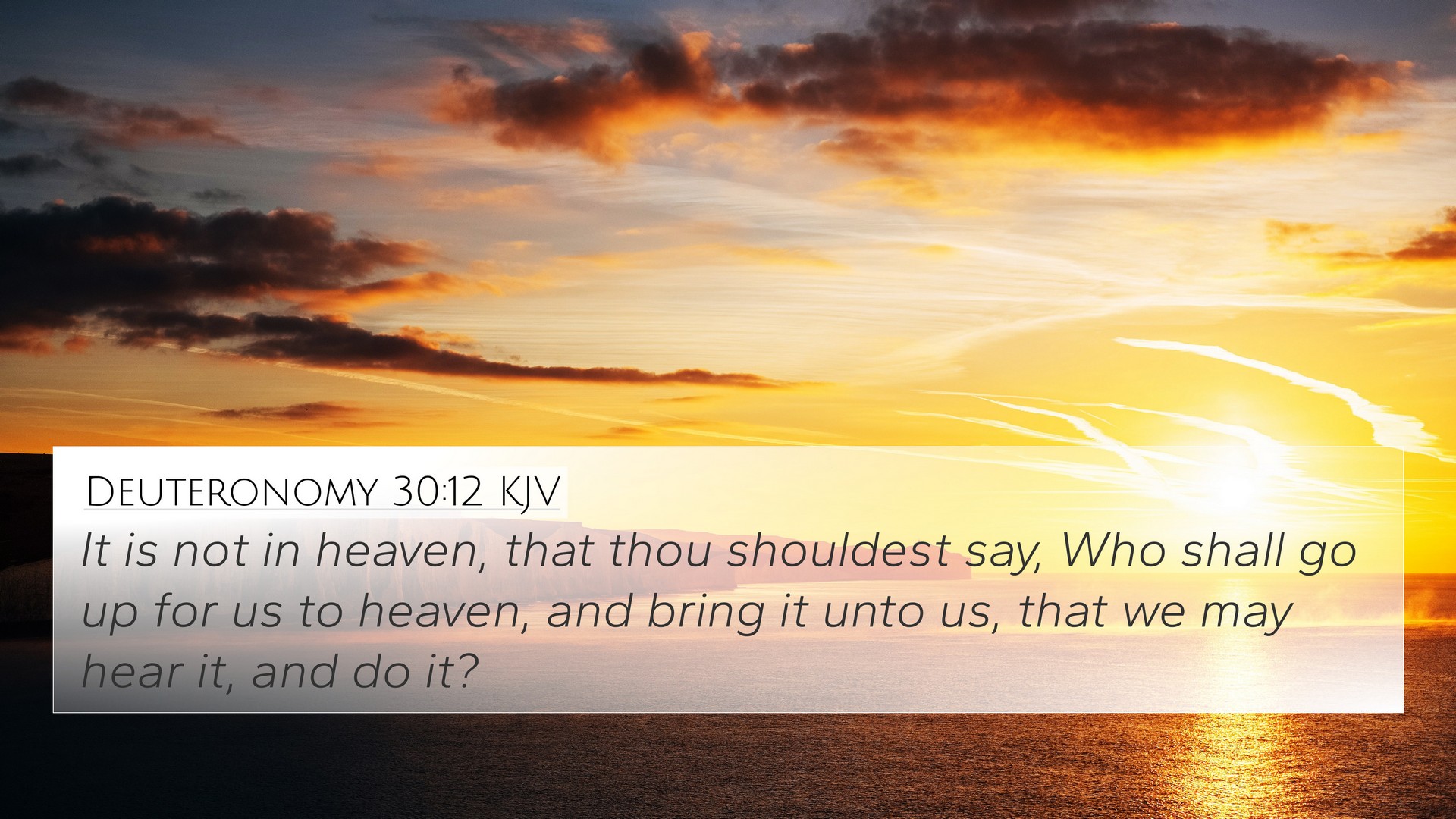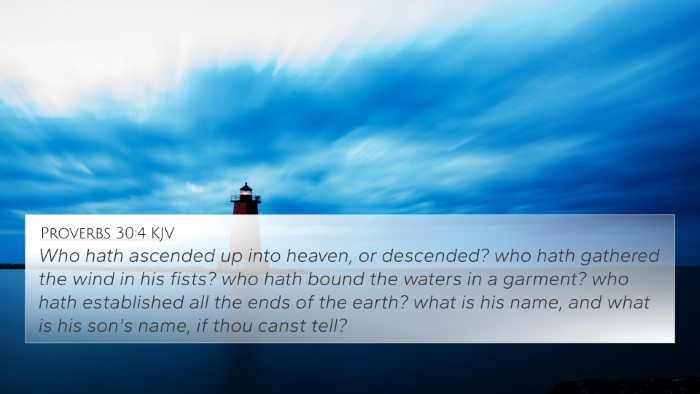Understanding Deuteronomy 30:12
Deuteronomy 30:12: "It is not in heaven, that thou shouldest say, Who shall go up for us to heaven, and bring it unto us, that we may hear it, and do it?"
Summary of Meaning
The verse speaks to the accessibility of God's commandments, emphasizing that they are not remote or unattainable. In context, Moses is reassuring the Israelites that the word of God is nearby, guiding them in their covenant relationship. This message underscores the importance of personal responsibility in pursuing God’s will.
Commentary Insights
-
Matthew Henry:
Henry emphasizes that God's commandments are clear and within reach. The verse illustrates that one does not need to ascend into heavenly realms to understand God’s will; it is given for our practical obedience.
-
Albert Barnes:
Barnes reflects on the directness of God's message, noting that the Israelites are called to recognize that they cannot defer their obligations to find a mediator. The law is approachable, requiring personal engagement.
-
Adam Clarke:
Clarke highlights the assurance provided in this verse that God’s instructions are not hidden. He posits that we should earnestly pursue these commandments and that access to God’s will is facilitated for everyone willing to seek it.
Bible Verse Cross-References
This verse is closely related to several other scriptures that reflect its themes of accessibility to God's word and personal responsibility:
- Romans 10:6-8: Discusses the righteousness which is of faith, affirming that the word is near you.
- Psalm 119:11: "Thy word have I hid in mine heart, that I might not sin against thee," indicating the importance of internalizing God’s commands.
- Philippians 4:8: Encourages believers to think on things that are true, emphasizing that God's principles are relevant and accessible.
- James 1:22: "But be ye doers of the word, and not hearers only," which aligns with the practical aspect of God's commands in Deuteronomy 30:12.
- Luke 10:25-28: A lawyer asks Jesus what he must do to inherit eternal life, illustrating the active pursuit of God's law.
- Jeremiah 29:13: "And ye shall seek me, and find me, when ye shall search for me with all your heart," reinforcing that God is found in earnest searching.
- 1 John 5:3: Affirms that loving God means keeping His commandments, linking love to action.
Thematic Bible Verse Connections
Deuteronomy 30:12 is a foundational verse reminding us of the personal duty of believers:
- Accessibility of God's Word: The abolition of barriers to understanding God's will.
- Responsibility in Faith: Each individual's obligation to act upon what is revealed.
- Directness of Divine Instruction: No need for intermediaries to grasp God's directives.
Cross-Referencing Biblical Texts
When studying this verse, consider utilizing resources and tools for Bible cross-referencing. This can enhance understanding and provide deeper insights into inter-Biblical dialogue:
- Bible concordance: A tool that allows you to find occurrences of specific words or phrases to explicate meanings.
- Cross-reference Bible study: Engaging with various verses that reflect similar themes or teachings enhances the study's depth.
- Comprehensive Bible cross-reference materials: Utilizing compiled references to verses can aid in understanding contextual relationships.
Conclusion
The exploration of Deuteronomy 30:12 illustrates the simplicity and clarity of God's laws. Engaging with the scriptures through cross-referencing not only enhances comprehension but also strengthens one's faith journey. Understanding that God’s word is accessible and applicable empowers believers to act in accordance with His will.





